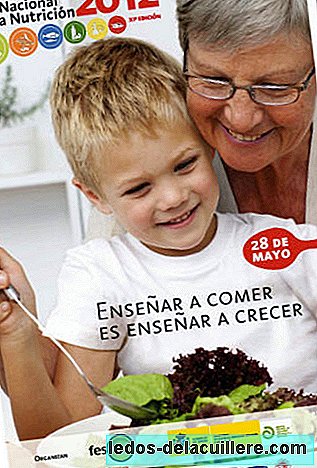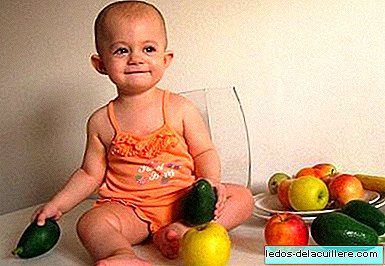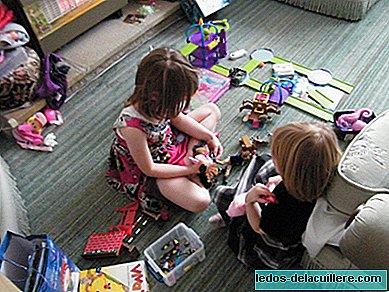
The next Monday, May 28, 2012, the XI edition of the National Nutrition Day is celebrated highlighting the role that the family can play in the acquisition of good eating habits.
It is an initiative of the Spanish Federation of Nutrition, Food and Dietetic Societies (FESNAD) in collaboration with other institutions, and with the support of the pharmaceutical and food industry.
This year and during the National Nutrition Day (DNN) day, emphasis will be placed on the following aspects:
The role of grandparents in children's education
- They are important because they have a less rigid relationship with children, because they are a valuable transmission belt, and because their displays of affection, playful company and forms of authority collaborate in the psychological development of children.
- It is important that grandparents respect the way their children educate grandchildren.
- And so is that current parents keep in mind that they cannot overburden parents and that they need to respect their leisure time.
The importance of transmitting healthy eating habits
- Older people maintain healthier lifestyle habits than younger people.
- The daily calorie intake in Spain grew by 27% between 1961 and 2011 and also the obesity figures.
- The diet based on fresh fruits and vegetables has been replaced by "too fatty" foods
Teaching to eat is teaching to grow
Food becomes the school of growing up: how to teach to eat to teach to grow?
1.- Involving them in the design of the menus of the house.
2.- Letting them participate in the purchase and explaining why we choose all the variety of foods.
3.- Putting them in the kitchen, so they will value more what they eat.
4.- Teaching them to set the table, this helps them understand that it dignifies food.
5.- Recovering food as a family and spending that time asking and listening to them.
6.- Talking about their own gastronomic culture.
7.- Turning meal times into pause spaces.
8.- Setting an example. You are the mirror in which they look, the easiest way to learn.
9.- Making sure that the moment of the meal is a moment of peace and not of quarrel. It helps them to come to the table with greater enthusiasm.
10.- Make them discover new flavors and textures, which improves their empathy
with food
Little tricks for each day
- Do not let them 'chop' anything before eating.
- Keep sweets and chocolates in a safe place and invite children only occasionally.
- Teach them to eat with water. Juices, soft drinks and sugary dairy products at meals are for special occasions.
- That the salt shaker is not within your reach and that you enjoy the authentic flavors.
• Try to try a new food every day.
In addition to all these reflections and recommendations, from FESNAD they inform us that during the DNN, a series of activities will be developed nationwide in hospitals, schools, universities and shopping centers (conferences, information points, delivery of informative materials to the population, etc.) with the sole purpose of spreading the importance of the elderly at home in the transmission of healthy eating habits to The smallest.












